Many people struggle to get enough rest each night. Sleep supplements can help improve sleep quality and duration. The best sleep supplements include melatonin, magnesium, and valerian root, which have been shown to promote relaxation and support healthy sleep patterns.

What to do before bed to sleep better:
Watch the video NOW!
Some natural sleep aids work by helping the body produce more sleep hormones. Others calm the nervous system to prepare for rest. Melatonin supplements are popular because they mimic the body’s natural sleep hormone. Magnesium helps relax muscles and reduce stress. Valerian root may increase levels of a calming brain chemical.
Before trying any new supplement, it’s important to talk to a doctor. Sleep aids can interact with medications or have side effects. It’s also key to practice good sleep habits like keeping a consistent bedtime and avoiding screens before bed. Combining supplements with healthy routines often works best for better sleep.
Key Takeaways
- Melatonin, magnesium, and valerian root are effective natural sleep aids
- Sleep supplements work in different ways to promote relaxation and rest
- Consulting a doctor and practicing good sleep habits enhances supplement benefits
Understanding Sleep and Its Importance
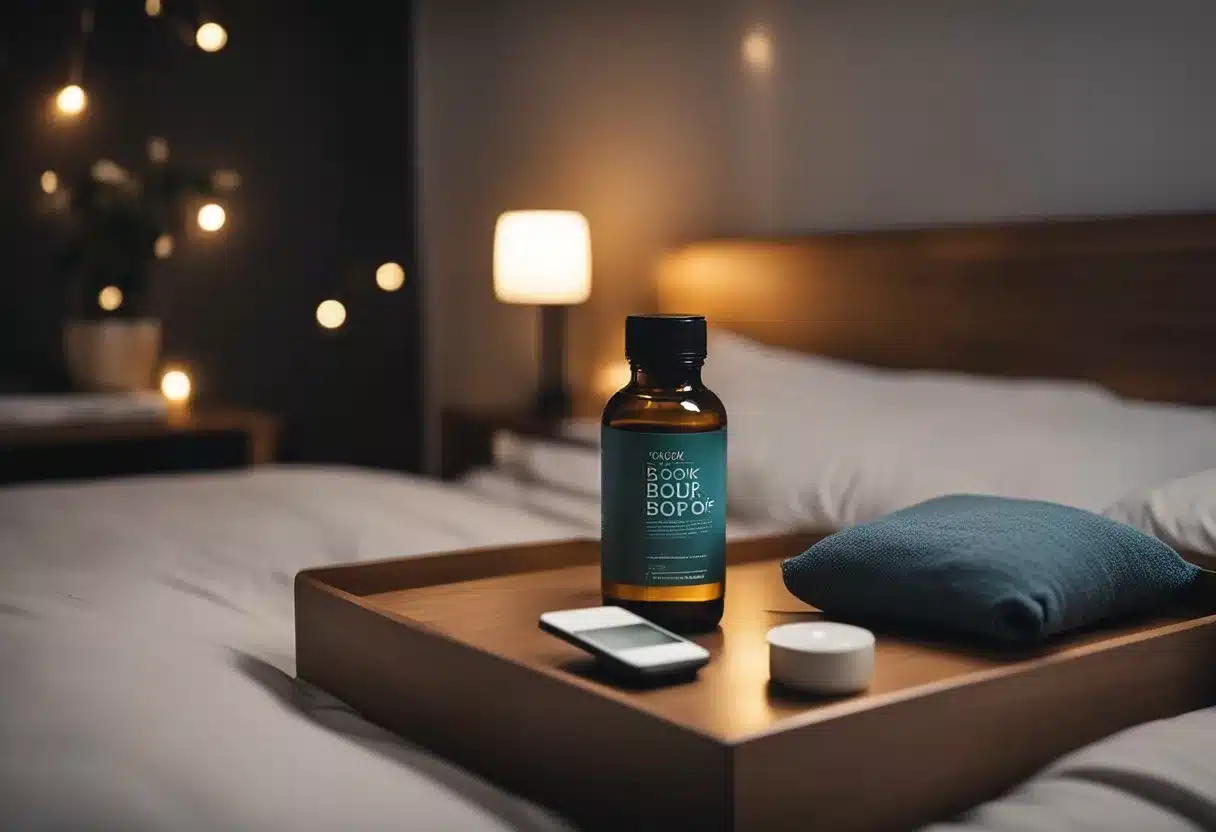
Sleep is vital for our health and well-being. It affects our physical and mental performance, mood, and ability to fight off diseases. Good sleep habits can improve our quality of life and prevent many health issues.
The Science of Sleep
Sleep is a complex process involving different stages. There are two main types: REM (rapid eye movement) and non-REM sleep. Non-REM sleep has three stages, from light to deep sleep.
During sleep, our brain and body perform important tasks. The brain processes information and forms memories. Our body repairs tissues, builds bone and muscle, and strengthens the immune system.
Adults need 7-9 hours of sleep per night. Children and teens need even more. Getting enough quality sleep is crucial for optimal health and function.
Effects of Poor Sleep on Health
Lack of sleep can harm our health in many ways. It can lead to:
- Weight gain
- Weakened immune system
- Higher risk of heart disease and diabetes
- Memory problems
- Mood changes and irritability
Chronic insomnia can cause serious health issues. It may increase the risk of depression and anxiety. Poor sleep can also affect work performance and personal relationships.
Daytime sleepiness from lack of sleep can be dangerous. It raises the risk of accidents at work or while driving. Good sleep hygiene is key to avoiding these problems.
Circadian Rhythm and Sleep-Wake Cycle
Our bodies have an internal clock called the circadian rhythm. This rhythm controls when we feel sleepy or awake. It responds to light and dark signals from our environment.
The circadian rhythm affects many body functions, including:
- Hormone production
- Body temperature
- Appetite
- Metabolism
Disrupting this cycle can lead to sleep disorders and other health issues. Jet lag and shift work can throw off our natural rhythm. This can cause fatigue, mood changes, and digestive problems.
Keeping a regular sleep schedule helps maintain a healthy circadian rhythm. Going to bed and waking up at the same time each day can improve sleep quality and overall health.
Natural Sleep Aids and Their Efficacy

Many people turn to natural remedies to improve their sleep. These include herbs, plants, vitamins, minerals, and amino acids. Each type of natural sleep aid works differently and has varying levels of effectiveness.
Herbs and Plants as Sleep Aids
Valerian root is a popular herb for sleep. It may help people fall asleep faster and improve sleep quality. Chamomile tea is another common choice. It has calming effects that can promote relaxation before bed.
Lavender is known for its soothing scent. It can be used as an essential oil or in tea form. Some studies suggest lavender may reduce anxiety and improve sleep.
Passionflower and lemon balm are other herbs that might help with sleep. They are often used in teas or supplements. These plants may have mild sedative effects.
The Role of Vitamins and Minerals
Magnesium plays a key role in sleep. Low magnesium levels can lead to poor sleep. Foods high in magnesium include nuts, seeds, and leafy greens. Magnesium supplements are also available.
Vitamin D is important for sleep regulation. People with low vitamin D levels may have trouble sleeping. Sunlight exposure and certain foods can boost vitamin D levels.
B vitamins, especially B6 and B12, help make melatonin. Melatonin is the body’s natural sleep hormone. Foods rich in B vitamins include meat, fish, and whole grains.
Amino Acids and Their Effects on Sleep
Tryptophan is an amino acid that helps make serotonin and melatonin. These chemicals help regulate sleep. Turkey, milk, and eggs are good sources of tryptophan.
GABA is another amino acid that promotes relaxation. It can help reduce anxiety and improve sleep quality. Some foods contain GABA, but supplements are more common.
5-HTP is made from tryptophan. It helps increase serotonin levels in the body. This may lead to better sleep and mood. 5-HTP is available as a supplement.
Factors Impacting Sleep Quality
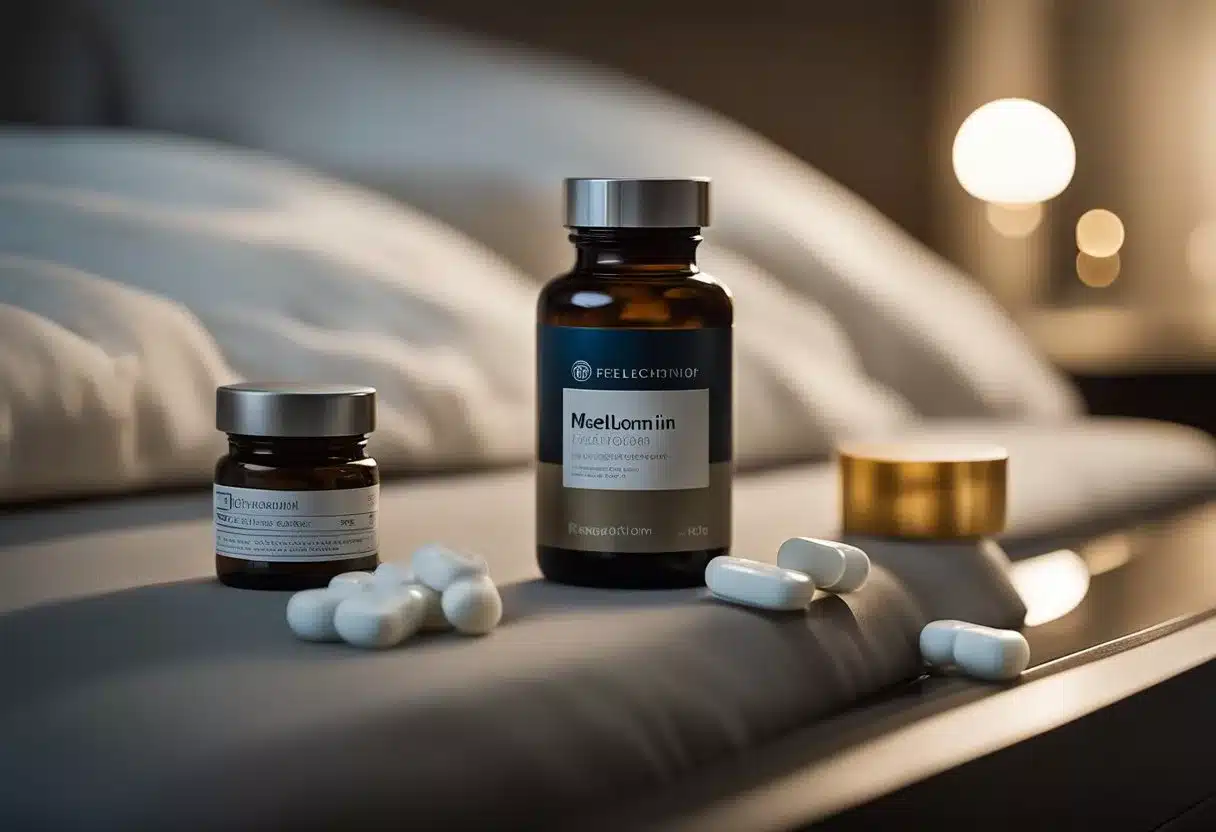
Sleep quality is influenced by several key factors. These include what we eat, our stress levels, and changes in our hormones.
Diet and its Connection to Sleep
What we eat affects how well we sleep. Some foods can help us sleep better, while others can make it harder to fall asleep.
Eating a balanced diet rich in fruits, vegetables, and whole grains can improve sleep quality. Foods high in tryptophan, like turkey and milk, may help promote sleep.
Caffeine and alcohol can disrupt sleep patterns. It’s best to avoid these close to bedtime. Spicy or heavy meals late at night can also cause discomfort and make it hard to sleep.
Vitamin D supplements may help improve sleep cycles. Good food sources of vitamin D include eggs, milk, and salmon.
The Impact of Stress and Anxiety
Stress and anxiety can greatly affect sleep quality. They can make it hard to fall asleep and stay asleep throughout the night.
High stress levels can increase cortisol, a hormone that keeps us alert. This can lead to racing thoughts and difficulty relaxing at bedtime.
Anxiety can cause physical symptoms like a rapid heartbeat or tense muscles. These can make it hard to get comfortable and fall asleep.
Relaxation techniques can help reduce stress and improve sleep. These include deep breathing, meditation, and gentle yoga.
Creating a calming bedtime routine can also help. This might include reading a book or taking a warm bath before bed.
Influence of Hormonal Changes
Hormones play a big role in regulating sleep patterns. Changes in hormone levels can affect sleep quality and duration.
Melatonin, often called the sleep hormone, helps control our sleep-wake cycle. As we age, our bodies may produce less melatonin, leading to sleep problems.
For women, hormonal changes during menstruation, pregnancy, and menopause can disrupt sleep. Hot flashes and night sweats during menopause can cause frequent wake-ups.
Thyroid hormones can also impact sleep. An overactive thyroid may cause insomnia, while an underactive thyroid can lead to excessive sleepiness.
Maintaining a consistent sleep schedule can help regulate hormone levels. Going to bed and waking up at the same time each day supports our natural sleep-wake cycle.
Common Sleep Disorders and Supplements
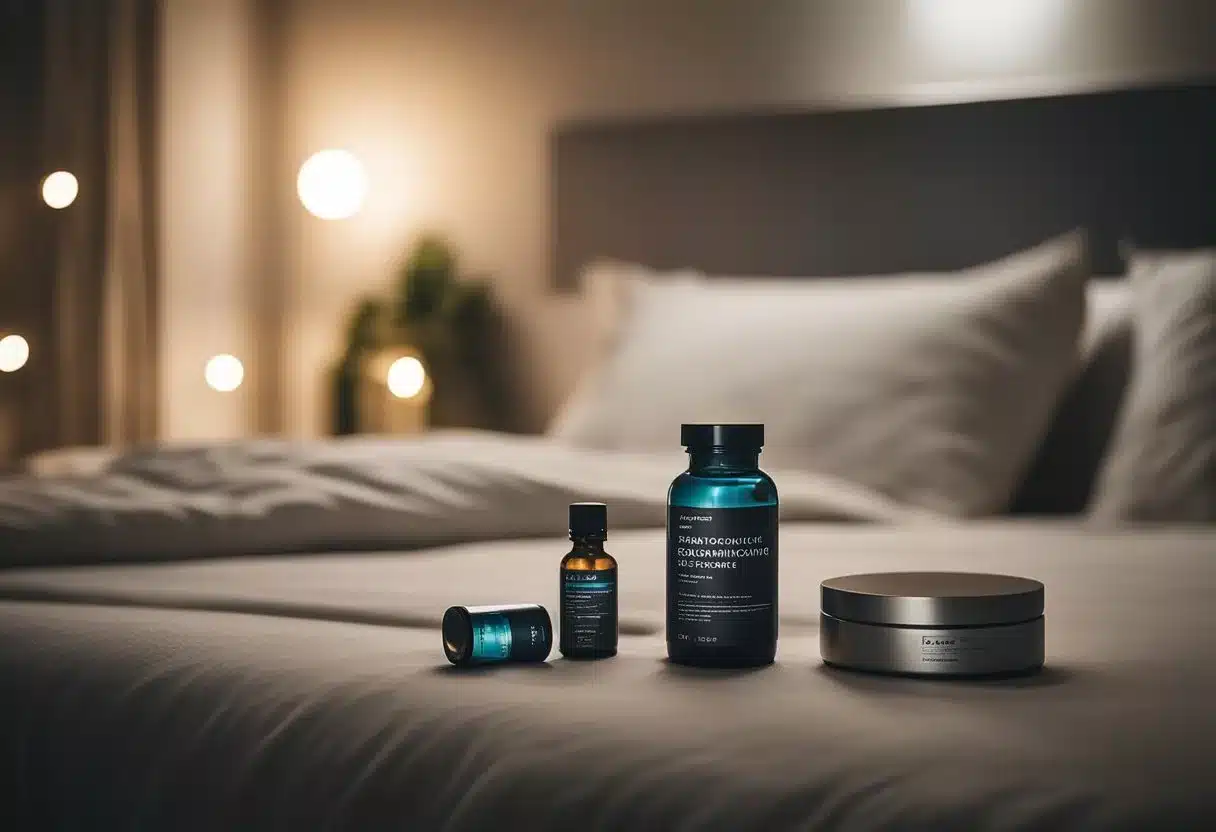
Sleep problems affect millions of people. Some supplements may help with different sleep issues. Let’s look at a few common sleep disorders and supplements that might provide relief.
Insomnia and Sleep Aids
Insomnia makes it hard to fall asleep or stay asleep. It’s one of the most common sleep disorders. Melatonin supplements can help regulate sleep cycles for some people with insomnia.
Valerian root is another popular natural sleep aid. It may help people fall asleep faster and improve sleep quality.
GABA (gamma-aminobutyric acid) supplements might also help with insomnia. GABA is a neurotransmitter that promotes relaxation.
Some people find magnesium helpful for sleep. It can have a calming effect on the nervous system.
Managing Jet Lag with Supplements
Jet lag happens when travel disrupts your body’s internal clock. It can cause sleep problems and daytime fatigue.
Melatonin is often used for jet lag. Taking it at the right time can help reset your sleep-wake cycle. The correct dosage and timing depend on your travel direction and schedule.
Vitamin D supplements may also help with jet lag. Vitamin D plays a role in regulating sleep patterns.
Some travelers use caffeine strategically to stay alert during the day in a new time zone. But it’s important to avoid it close to bedtime.
Supplements for Sleep Apnea
Sleep apnea is a serious condition where breathing repeatedly stops and starts during sleep. While supplements can’t cure sleep apnea, some may help with symptoms.
Omega-3 fatty acids might reduce inflammation in the airways. This could potentially ease breathing for some people with sleep apnea.
Vitamin C and E supplements may help protect against the oxidative stress caused by sleep apnea. However, more research is needed.
Melatonin might improve sleep quality for people with sleep apnea. But it’s not a replacement for proper medical treatment like CPAP machines.
Safety and Side Effects of Sleep Supplements
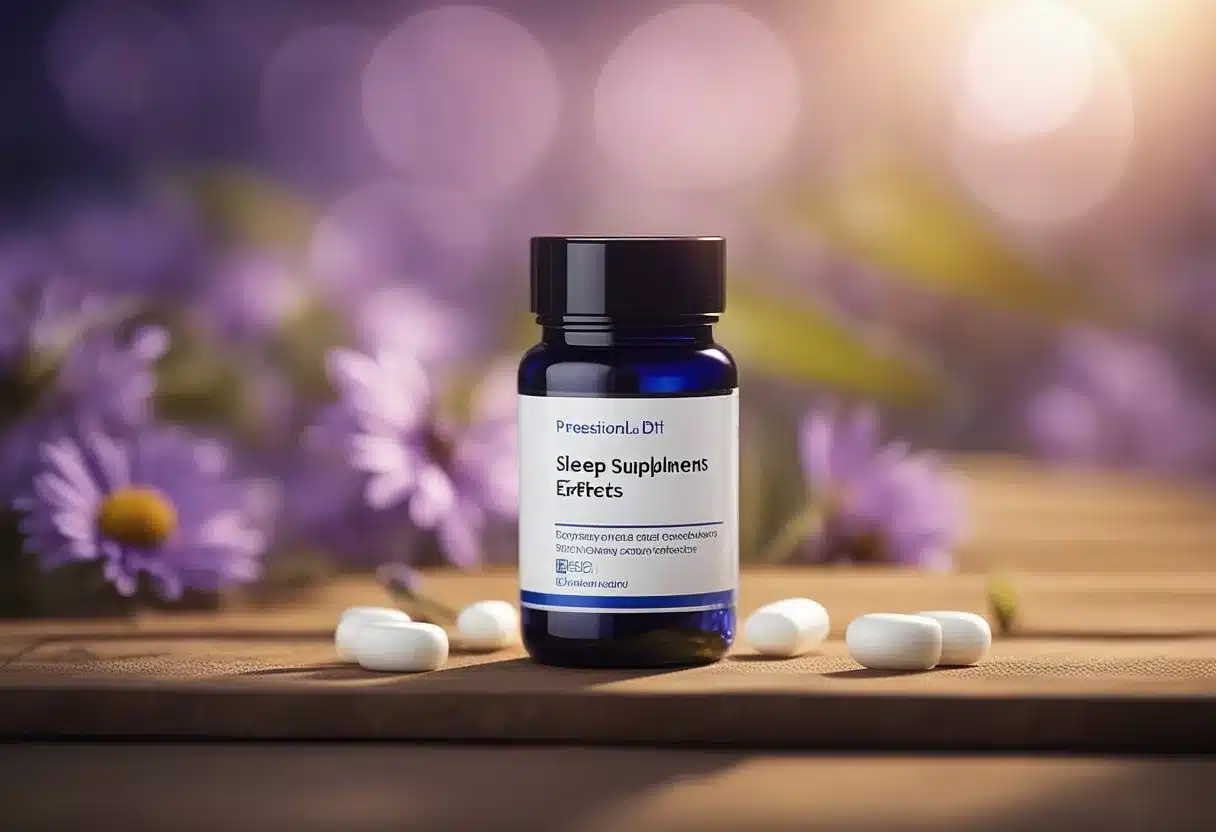
Sleep supplements can help some people get better rest, but they may also have risks. It’s important to understand how these products are regulated and their potential effects on your body.
Regulation of Sleep Supplements by the FDA
The Food and Drug Administration (FDA) doesn’t regulate dietary supplements as strictly as prescription drugs. This means sleep aids may not be tested as thoroughly before hitting store shelves.
Manufacturers are responsible for ensuring their products are safe. The FDA only steps in if a supplement is found to be unsafe after it’s already on the market.
This lighter oversight can lead to issues with product quality and consistency. Some supplements may not contain the ingredients listed on the label or might have different amounts than claimed.
Potential Adverse Effects
Even “natural” sleep aids can cause side effects. Common issues include:
- Diarrhea
- Nausea
- Headaches
- Upset stomach
More serious problems can occur too. Some sleep supplements may:
- Interact with other medications
- Cause allergic reactions
- Lead to dependency or withdrawal symptoms
It’s crucial to remember that natural doesn’t always mean safe. Every substance that affects the body can have potential downsides.
Consultation with a Healthcare Provider
Before starting any sleep supplement, it’s wise to talk to a doctor or pharmacist. They can help:
- Assess if a supplement is right for you
- Check for potential drug interactions
- Recommend proper dosages
- Monitor for side effects
Healthcare providers can also explore underlying causes of sleep issues. Sometimes, lifestyle changes or treating other health conditions can improve sleep without supplements.
For pregnant women or those with chronic health conditions, professional advice is especially important. These groups may face higher risks from sleep supplements.
The Role of Sleep Aids for Specific Populations
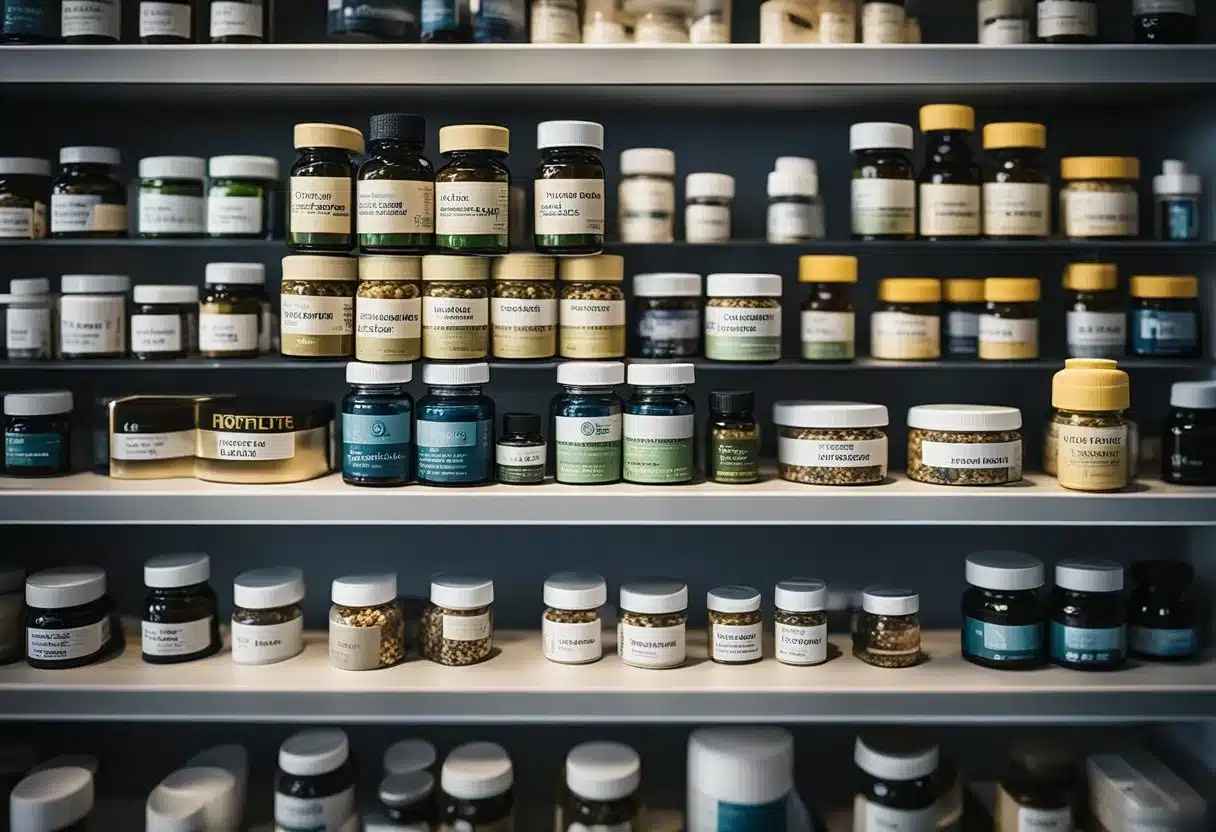
Sleep aids can be helpful for different groups of people. Some groups face unique sleep challenges due to age, work schedules, or health issues. The right supplements may improve sleep quality for these populations.
Supplements for Shift Workers
Shift workers often struggle with sleep due to irregular schedules. Their bodies may have trouble producing melatonin at the right times. Melatonin supplements can help reset the sleep-wake cycle.
Magnesium is another useful supplement for shift workers. It can relax muscles and calm the nervous system. This may lead to better sleep quality during odd hours.
B-complex vitamins help the body manage stress. They can boost energy during work hours and aid in restful sleep later.
Elderly and Sleep-Related Issues
As people age, sleep patterns often change. Many elderly individuals have trouble falling asleep or staying asleep through the night.
Melatonin can be effective for older adults. It may help them fall asleep faster and wake up less during the night.
Valerian root is an herb that may improve sleep quality in the elderly. Some studies show it can reduce the time it takes to fall asleep.
Magnesium deficiency is common in older adults. Taking a magnesium supplement might help relax muscles and promote better sleep.
Children and Teenagers’ Sleep Support
Young people need more sleep than adults. But modern lifestyles can make it hard to get enough rest.
For children and teens, melatonin should be used carefully. It’s best to try other methods first, like setting a regular bedtime routine.
Chamomile tea is a gentle, natural option. It can help kids and teens relax before bed.
L-theanine, found in green tea, may help teenagers feel calmer. This could lead to better sleep quality.
Magnesium is safe for most children and can promote relaxation. It’s found in many foods but can also be taken as a supplement.
Lifestyle Habits to Enhance the Effectiveness of Sleep Supplements
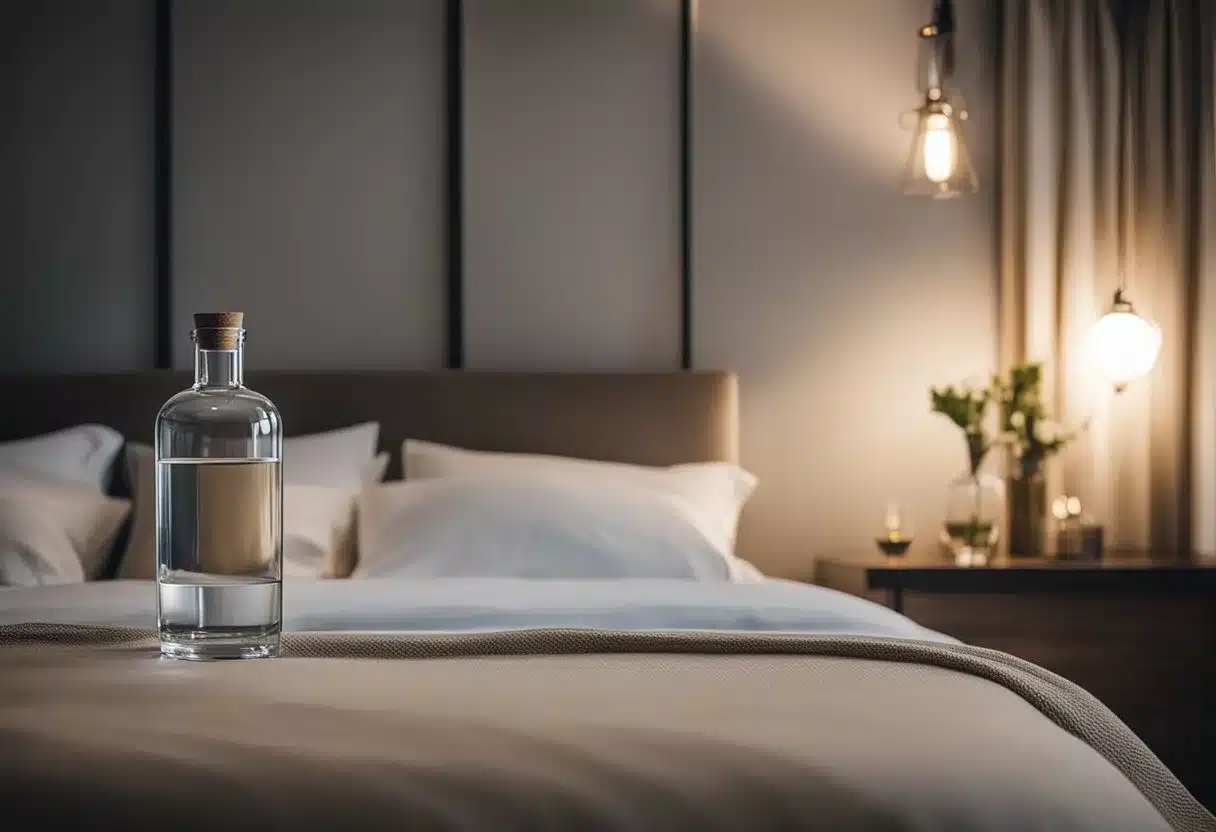
Sleep supplements work best when combined with good habits. Some key practices can boost their effects and help you get better rest.
Optimizing Sleep Environment
A calm bedroom helps sleep supplements work better. Keep your room dark with blackout curtains or an eye mask. Use a white noise machine to block out sounds. Set the temperature between 60-67°F (15-19°C) for ideal sleeping conditions.
Remove electronics from the bedroom. The blue light from screens can disrupt your sleep cycle. Try reading a book instead of using your phone before bed. Use comfortable bedding and pillows to support your body.
Keep a consistent sleep schedule, even on weekends. This helps regulate your body’s internal clock and can make supplements more effective.
Exercise and Its Relation to Better Sleep
Regular exercise can improve sleep quality. Aim for at least 30 minutes of moderate activity most days. This can help you fall asleep faster and sleep more deeply.
Avoid intense workouts close to bedtime. They can make you feel energized and alert. Instead, exercise in the morning or early afternoon. This can help regulate your sleep-wake cycle.
Gentle stretching or yoga before bed can relax your muscles. This may enhance the calming effects of supplements like L-theanine.
Mindfulness and Relaxation Techniques
Stress can interfere with sleep, even when taking supplements. Practice relaxation methods to calm your mind before bed. Deep breathing exercises can lower heart rate and blood pressure.
Try progressive muscle relaxation. Tense and relax each muscle group from toes to head. This can reduce physical tension and promote drowsiness.
Meditation can quiet racing thoughts. Start with just 5 minutes a day and gradually increase. Apps like Headspace or Calm offer guided sessions.
Avoid stressful activities before bed. Instead, try calming hobbies like coloring or listening to soft music. These can complement the effects of natural sleep aids.
Emerging Research on Sleep and Supplements
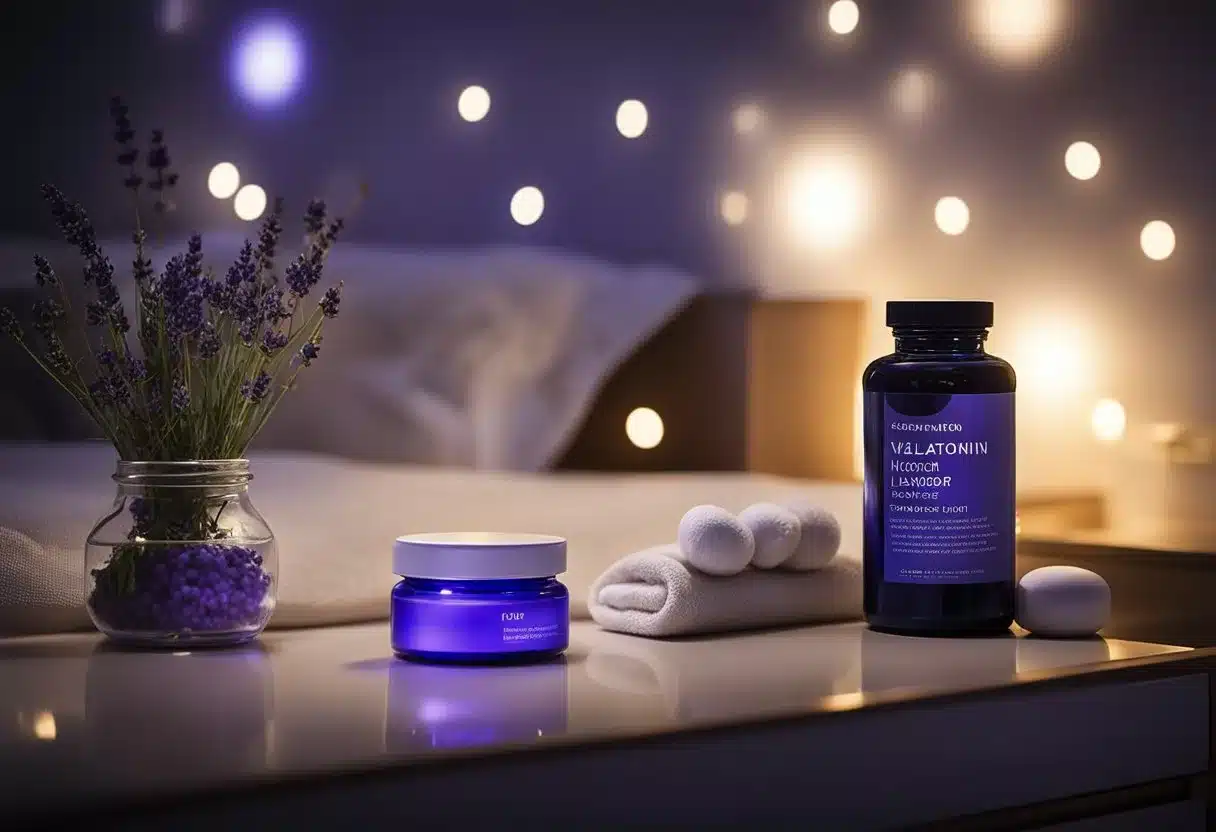
New studies are exploring natural remedies and innovative approaches to improve sleep quality. Scientists are looking at global trends and developing advanced sleep aids.
Innovative Natural Remedies
Researchers are studying lesser-known plant extracts for their sleep-enhancing properties. Nitrates, zinc, and L-theanine show promise in early trials. These compounds may work by influencing brain chemistry and sleep cycles.
Some scientists focus on combining natural ingredients for stronger effects. For example, a mix of valerian root and lemon balm is being tested.
Traditional remedies from different cultures are also getting attention. Chinese herbs like jujube and Asian ginseng are under investigation for their sleep benefits.
The Future of Sleep Aid Development
Sleep aid development is moving towards personalized solutions. Scientists are working on supplements that can be tailored to individual sleep patterns and needs.
Smart technology is being integrated into sleep supplements. Some companies are developing apps that work with supplements to track sleep quality and adjust dosages.
Researchers are exploring how supplements can target specific sleep disorders. This includes formulas for jet lag, shift work, and age-related sleep issues.
Global Trends in Sleep Supplements
The sleep supplement market is growing rapidly in Asia. Countries like Japan and South Korea are leading in innovative sleep products.
In Europe, there’s a trend towards plant-based and organic sleep aids. Lavender and chamomile remain popular, but new herbal blends are gaining traction.
Melatonin use varies globally. It’s widely available in the US but restricted in some European countries. This has led to different supplement trends across regions.
Many countries are tightening regulations on sleep supplements. This is pushing companies to invest more in clinical trials and quality control.
Frequently Asked Questions
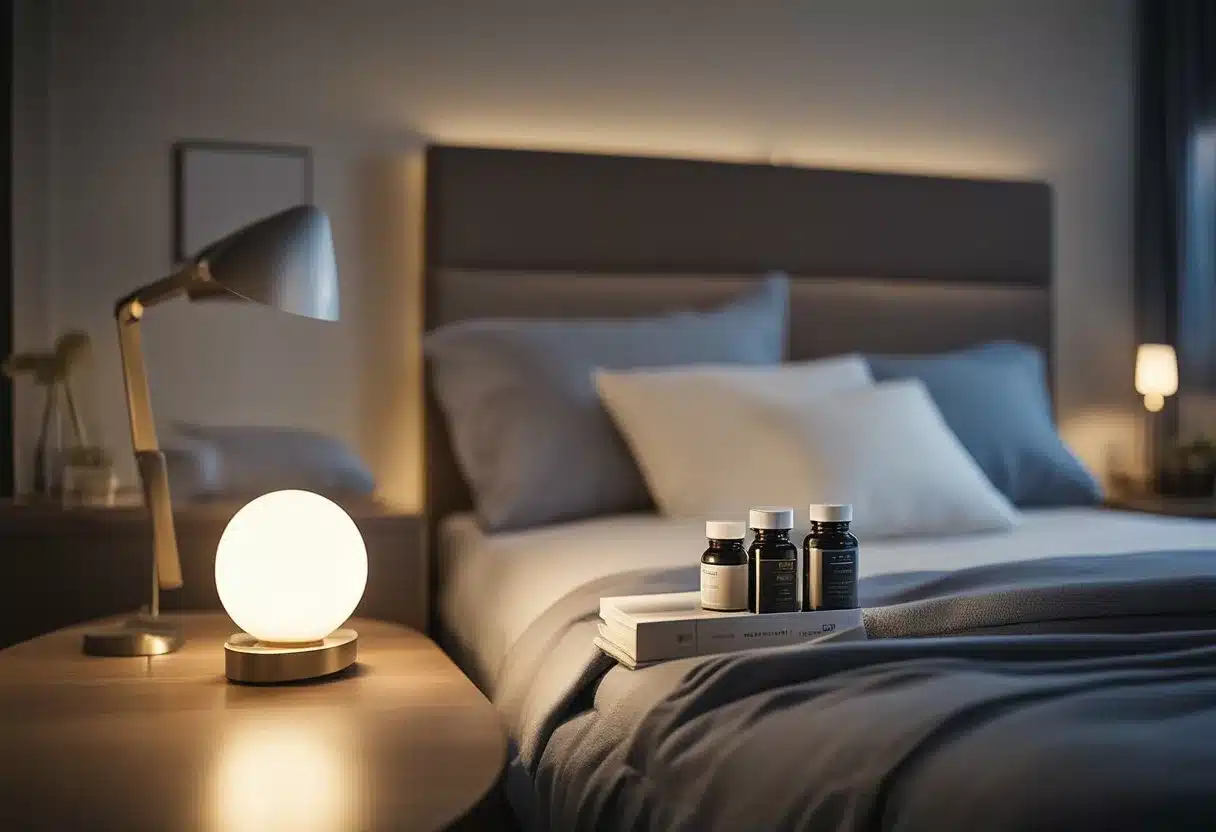
Sleep supplements come in many forms and can have different effects. Some are natural, while others are available over-the-counter. Their impacts and potential risks vary.
What natural supplements can aid in enhancing sleep quality?
Valerian root and chamomile are popular natural sleep aids. These herbs have calming properties that may help people fall asleep faster.
Melatonin is another natural option. It’s a hormone that regulates the body’s sleep-wake cycle.
Are there any over-the-counter supplements recommended for sleep improvement?
Magnesium supplements are often recommended for better sleep. This mineral plays a role in regulating neurotransmitters that affect sleep.
Some drugstores sell melatonin and valerian root as over-the-counter sleep aids. These don’t require a prescription.
How do melatonin supplements affect sleep patterns?
Melatonin supplements can help reset the body’s internal clock. They may be useful for people with jet lag or shift work sleep disorder.
These supplements can shorten the time it takes to fall asleep. They may also increase total sleep time.
What are the possible side effects of taking sleep-promoting supplements?
Common side effects of sleep supplements include daytime drowsiness and headaches. Some people may experience vivid dreams or nightmares.
Dry mouth, dizziness, and nausea are also possible side effects. These usually go away as the body adjusts to the supplement.
Could minerals or vitamins contribute to better sleep?
Magnesium can help improve sleep quality. It plays a role in regulating the nervous system and may promote relaxation.
Vitamin D deficiency has been linked to poor sleep. Getting enough of this vitamin might help improve sleep quality.
Are there any long-term risks associated with using supplements for sleep?
Long-term use of sleep supplements can lead to dependence. The body may have trouble falling asleep without them.
Some supplements can interact with medications. It’s important to talk to a doctor before starting any new supplement regimen.